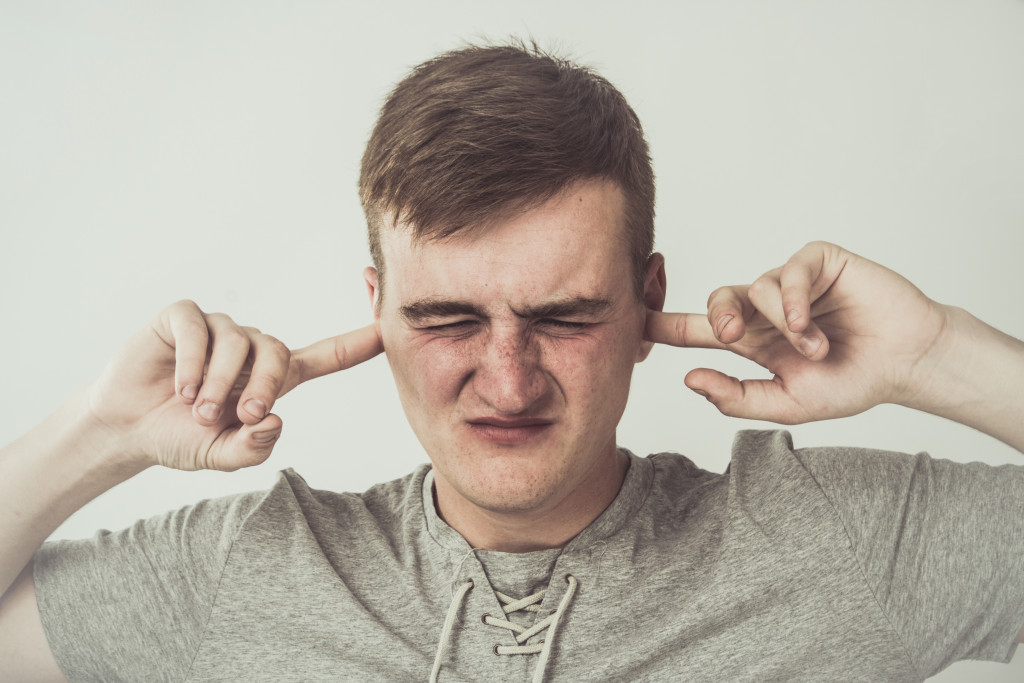- Ear infections, tinnitus, earwax build-up, Meniere’s disease, and hearing loss are common ear problems.
- Ear problems can cause pain and discomfort and compromise a person’s quality of life if untreated.
- Proper hygiene and avoiding intrusive cleaning methods can prevent ear infections and excessive earwax.
- Protecting ears in loud environments and regular check-ups can prevent noise-induced hearing loss and early problem detection.
- Hydration, a healthy diet, and a proactive approach to ear care can reduce risks and maintain ear health.
The ears are an important part of the human body. They play a crucial role in hearing and maintaining the body’s balance. However, many people experience ear problems that can be painful and cause inconvenience. Here are some common ear problems people experience, how to deal with them, and tips on preventing them.
1. Ear Infections
Ear infections are a common ear problem that affects both children and adults. It occurs when bacteria or viruses infect the middle ear, causing inflammation and pain. The symptoms of ear infections include ear pain, fever, and difficulty hearing. Children are more prone to ear infections due to their smaller ear structures, but adults can also develop ear infections due to colds, allergies, or sinus infections. If left untreated, ear infections can lead to complications such as hearing loss or a ruptured ear drum.

2. Tinnitus
Tinnitus is when people hear ringing, buzzing, or other noises in their ears. It can be caused by various factors such as exposure to loud noise, age-related hearing loss, or a side effect of medication. Although tinnitus is not a severe condition, it can be bothersome and affect a person’s quality of life. Your main option to deal with tinnitus is by getting a high-quality tinnitus treatment. They can give you certain medications to reduce the symptoms or suggest sound therapy to help you cope.
3. Earwax Buildup
Earwax is a natural substance that protects the ear from dirt and bacteria. However, too much wax accumulates in the ear canal can cause hearing problems and discomfort. Some people are more prone to earwax buildup due to their genetics or the use of hearing aids or earbuds. Avoid inserting objects such as cotton swabs or bobby pins into the ear canal to prevent earwax buildup, as they can push wax deeper inside. Ear drops or irrigation can also be used to remove earwax buildup.
4. Meniere’s Disease
Meniere’s disease is a chronic ear condition that affects the inner ear and causes episodes of vertigo, ear ringing, and hearing loss. It is believed to be caused by a buildup of fluid in the inner ear or a problem with the body’s balance system. Meniere’s disease can be treated with medication, therapy, or surgery, depending on the severity of the symptoms.
5. Hearing Loss
Hearing loss is a common ear problem that affects many people, especially as they age. It can be caused by various factors such as genetics, exposure to loud noise, or certain medical conditions. Hearing loss can affect a person’s communication ability and lead to social isolation. Treatment options include hearing aids, cochlear implants, or assisted listening devices.
Prevention Tips
If you want to prevent ear problems, consider following these four tips:

Maintain Good Hygiene Practices
Cleaning your ears properly is crucial in preventing ear infections and earwax buildup. However, avoid using cotton swabs or inserting objects into your ear canal. Instead, clean the outer ear with a damp cloth and let your ear’s natural mechanisms care for the ear canal.
Protect Your Ears in Loud Environments
Continuous exposure to loud noises can result in noise-induced hearing loss or tinnitus. Wear earplugs or earmuffs to protect your hearing when in loud environments, such as concerts or construction sites.
Regular Check-ups
Regular visits to an audiologist or otolaryngologist can help detect potential ear problems early. Timely diagnosis and treatment can prevent complications and preserve your hearing.
Stay Hydrated and Maintain a Healthy Diet
Good hydration helps maintain the right fluid balance in your body, including your inner ear, reducing the risk of conditions like Meniere’s disease. Also, a diet rich in vitamins and minerals can help improve your overall ear health. For instance, foods high in omega-3 fatty acids and antioxidants can help protect your ear’s health.
Ear health is vital for your well-being, from maintaining balance to facilitating communication. While ear problems are common, a proactive approach toward ear care can mitigate most issues. You can significantly lower the risk of ear conditions by adhering to good ear hygiene, protecting your ears in noisy environments, undertaking regular health check-ups, and maintaining a healthy lifestyle. However, never seek medical advice if you encounter ear discomfort or irregularities.
